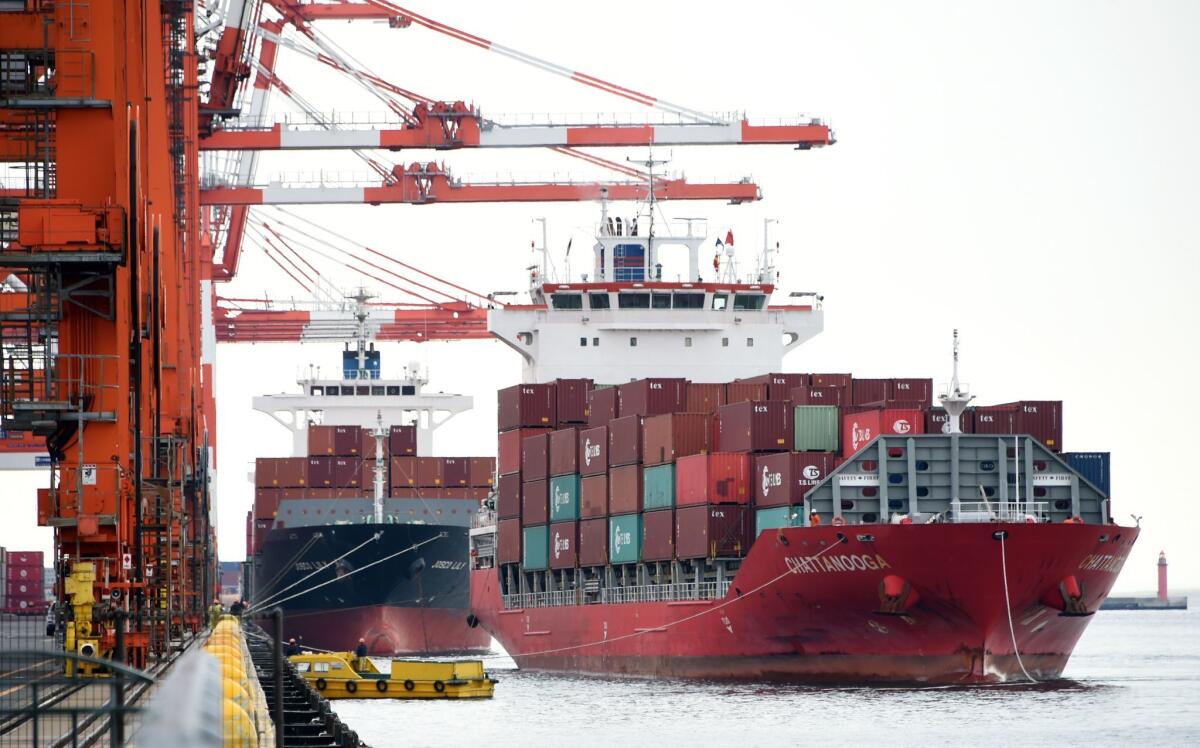Global goods trade already slow; coronavirus will likely make it worse, WTO says

Global trade in goods will likely remain weak in coming months as disruptions from the coronavirus outbreak in China stanch the movement of international commerce already slowed by tariffs and uncertainty, according to the World Trade Organization.
The Geneva-based body’s latest forward-looking Goods Trade Barometer stood at 95.5, compared with a level of 96.6 in November. Readings of 100 indicate growth over the next quarter in line with medium-term trends, while those higher or lower than 100 point to growth above or below the recent trend.
“The slow start could be be dampened further,” the WTO said in the report, “by global health threats and other recent developments in the first few months of the year, which are not yet accounted for in the barometer’s best-available historical data.”
The volume of world merchandise trade was down 0.2% in the third quarter last year compared with a year earlier, according to the organization.
“The latest barometer reading provides no indication of a sustained recovery,” it said. “Indeed, year-on-year trade growth may fall again in the first quarter of 2020, though official statistics to confirm this will only become available in June.”
The drop in recent months was tied to declines in container shipping, agricultural commodities and a leveling out of the automotive products index, the WTO said. Readings of export orders, air freight and electronic components, although below the baseline, “appear to have stabilized and would normally be expected to rise in the coming months.”
“However, every component of the Goods Trade Barometer will be influenced by the economic impact of COVID-19 and the effectiveness of efforts to treat and contain the disease,” the organization said.
The U.S. and China signed a deal last month that forestalled any escalation in the trade war between the world’s two largest economies but kept intact tariffs on each other’s goods. The U.K. and European Union, meanwhile, are trying to hammer out an agreement on cross-border commerce this year after Britain officially left the bloc on Jan. 31 after almost half a century of membership.
More to Read
Inside the business of entertainment
The Wide Shot brings you news, analysis and insights on everything from streaming wars to production — and what it all means for the future.
You may occasionally receive promotional content from the Los Angeles Times.










